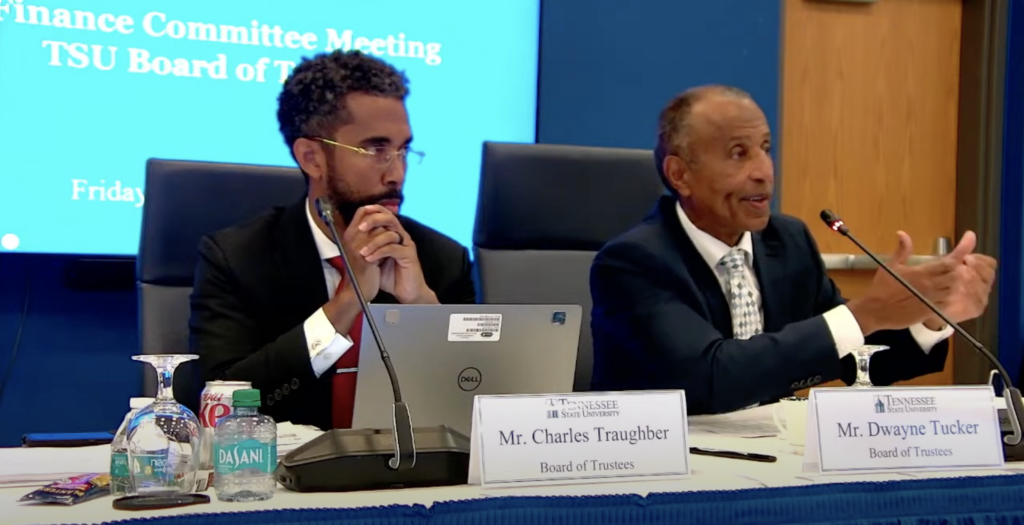
In his first day on the job on Monday, Tennessee State University’s new interim president, Dwayne Tucker, took questions from members of the State Building Commission, the group that helped the historically Black university avoid bankruptcy last month by redirecting federal grant money from a building project to general operating expenses.
In return, the state is asking for budget cuts. The school already cut more than 100 staff members this fall. But the building commission asked for further belt tightening. Commissioners said they want the board of the university to declare financial exigency. The drastic measure would allow TSU to do things like end faculty tenure and renegotiate contractual obligations.
That’s particularly relevant because TSU is currently working with Attorney General Jonathan Skrmetti to back out of its agreement with former university president Glenda Glover. The school paid Glover $850,000 in exchange for retiring as president early, and an additional $850,000 to raise funds for the university.
Glover’s successor, Ronald Johnson, served as president for just four months. He resigned abruptly last week citing, “a fundamental difference of perspective with the board on how best to move this institution forward.”
Now Tucker has that role. As he testified before state officials, he struck a conciliatory tone. He referenced a federal government study that found the state has underfunded TSU by $2 billion since the 1980s. But he said the university needs to be realistic about what it can get from the state in the short term.
“Prior leadership to some degree has created this narrative about funding that could potentially come from the state. But I don’t think there’s an accounts payable for Tennessee State for $2.1 billion,” Tucker said.
Before becoming interim president, Tucker was one of the TSU board members appointed last year by Gov. Bill Lee after the state fired and completely replaced the old board. He is also the CEO of the charter school network LEAD Public Schools, and a TSU alum with a 40-year career working for Fortune 500 companies like Northwest Airlines.

